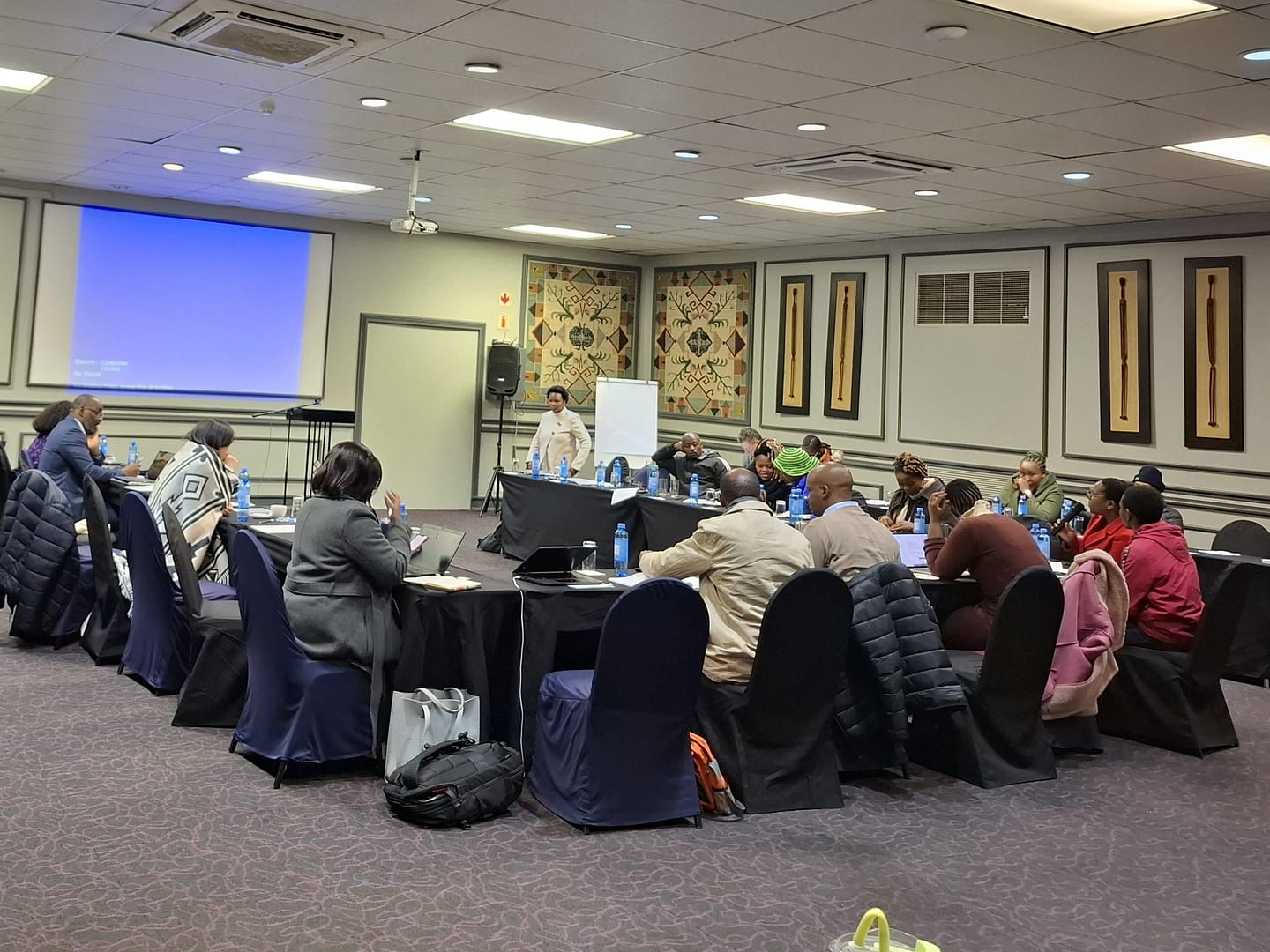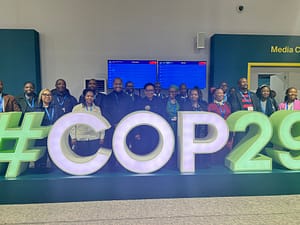The Green Climate Fund (GCF) convened a multi-day stakeholder engagement session in Lesotho to foster deeper understanding of GCF operations and strengthen climate finance access. The session brought together government agencies, civil society, development partners, and accredited entities to explore opportunities for accelerating low-emission, climate-resilient development pathways in Lesotho.

The session was formally opened with a heartfelt welcome and recognition of key dignitaries in attendance, including the Government ministries, Accountant General, Chief Executive of Disaster Management Authority, and various Principal Secretaries from Ministries such as Ministry of Environment and Forestry, Public Works, Transport, and Natural Resources. Special acknowledgment was extended to the Honorable Minister and the GCF delegation for prioritizing Lesotho in their regional outreach.
In his welcoming address, Mr Mokoena France emphasized the significance of GCF’s physical presence in Lesotho, stating:
“Over a long period, maybe decades, climate change was treated as a slogan, until we saw the monster in the house. Now we understand the need for partnerships, integration, and coordinated responses. Your presence here marks a milestone in our national efforts to combat climate change.”
GCF’s Mandate and Role
The GCF was established under the United Nations Framework Convention on Climate Change (UNFCCC) to serve the Paris Agreement by financing the climate action priorities of developing countries. The Fund aims to support transitions toward low-carbon, climate-resilient development, with a unique positioning as a country-driven, partnership-based institution.
Key highlights of GCF’s role include:
- Utilizing readiness support to align projects with national priorities
- Offering a wide range of financial instruments, including grants and blended finance
- Targeting a balanced allocation of 50% mitigation and 50% adaptation, with a strong emphasis on adaptation in Africa
Strategic Areas of Support
GCF programs focus on several priority sectors:
- Mitigation: energy generation and access, transport, buildings, forest and land use
- Adaptation: food and water security, health systems, resilient infrastructure, ecosystem services
The Fund promotes integrated programming that delivers co-benefits across sectors.
Vision and Reform Agenda
Under its current Executive Director, GCF is advancing the “50 by 30” vision, a strategy to mobilize USD 50 billion by 2030. This includes reforms aimed at:
- Enhancing operational efficiency
- Expanding private sector engagement
- Simplifying access to resources, especially for the most vulnerable
- Strengthening partnerships with direct access entities
Country Programme and Engagement in Lesotho
Lesotho, as a Least Developed Country (LDC), plays a significant role in shaping climate agendas, including consolidated African positions at the UNFCCC. GCF engagement in Lesotho will prioritize:
- Alignment with national development strategies (NDCs, NAPs, LTSs)
- Capacity building through the Readiness Programme
- Development of bankable project concept notes
- Scaling up renewable energy, in response to a request from the King’s Office
The New Readiness Strategy (2024–2027)
A critical highlight of the session was the presentation of GCF’s new readiness strategy, aimed at strengthening institutional capacity and accelerating climate finance access. Key reforms include:
- Medium-term programming: Replacing the annual grant cycle with a three-to-four-year planning window, allowing countries to access up to USD 4 million under a single comprehensive program.
- Two funding windows: One focused on country capacity building, and another on NAP development, each with an allocation of USD 4 million and USD 3 million respectively.
- GCF Placement Officer: Lesotho will receive an in-country liaison to support coordination between GCF and national stakeholders.
Additionally, direct access entities (DAEs) can receive an extra USD 1 million to build capacity and support implementation. Emphasis was placed on linking readiness to actual project development and aligning with NDCs, NAPs, and LTSs.

The session marked a critical step in deepening the partnership between GCF and Lesotho. With a focus on practical engagement, mutual learning, and strategic alignment, the meeting laid the groundwork for scaling up impactful climate actions tailored to national realities.
Lesotho stands at a pivotal moment. While significant progress has been made through readiness support, the challenge now is to transition to large-scale, high-impact climate investments. A clear call was made for improved coordination, stronger partnerships, and the acceleration of direct access to funding. With the GCF’s support and the country’s firm political commitment, Lesotho is well-positioned to unlock new climate finance opportunities and build a more resilient future.






